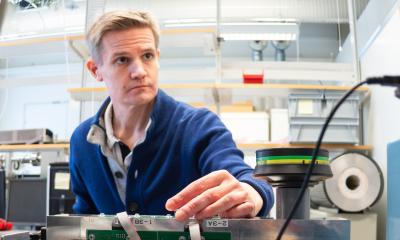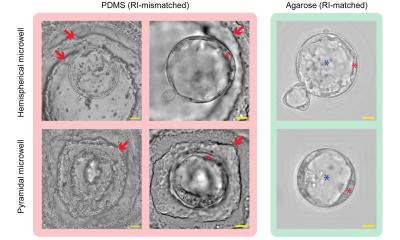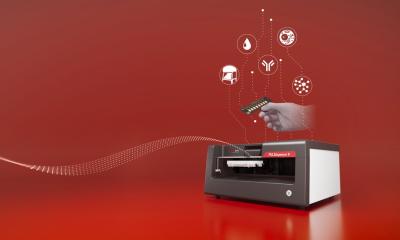On-the-spot multi-task lab-on-a-chip
A new lab-on-chip system, the ivD-platform, which quickly determines, on site, the contents and parameters of biological samples, such as blood or saliva, with the help of immunoassay or DNA analysis, was presented at Biotechnica this autumn.
This system, which was developed by researchers in eight institutes of Germany’s Fraunhofer-Gesellschaft (Society), removes the current procedural delay caused because blood samples must be sent to a lab for analysis.
The lab-on-a-chip detects the analytes by the binding of antigens to antibodies. For DNA analysis the researchers utilise the double-strand to detect analytes.
Results are sorted on the basis of optical fluorescence signals or electrical signals.
Interestingly, the ivD-platform can be used for all kinds of bio-analytical problems, whilst previously it was necessary to use different, specially adapted biochips for different samples. Depending on the type of substance a customer wants analysed, different antigens are applied as binding agents. Also contrary to conventional examinations, just a few microlitres of the sample are sufficient for an immunoassay.
The Fraunhofer scientists have developed translation rules based on which units can be scaled down. Thus it is possible to calculate which antigens should be used, and in what amounts, for an optimum binding reaction for all kinds of samples. Apart from the different binding agents used, the ivD-platform is the same for all biological samples. Therefore it can be cost-effectively mass-produced, they point out, adding: ‘Thanks to the lab-on-chip system in future it will be possible to carry out fast sample analysis – and not only in human medicine: The ivD-platform can also be used in the fields of environmental, food and agricultural analysis.’
19.11.2008





